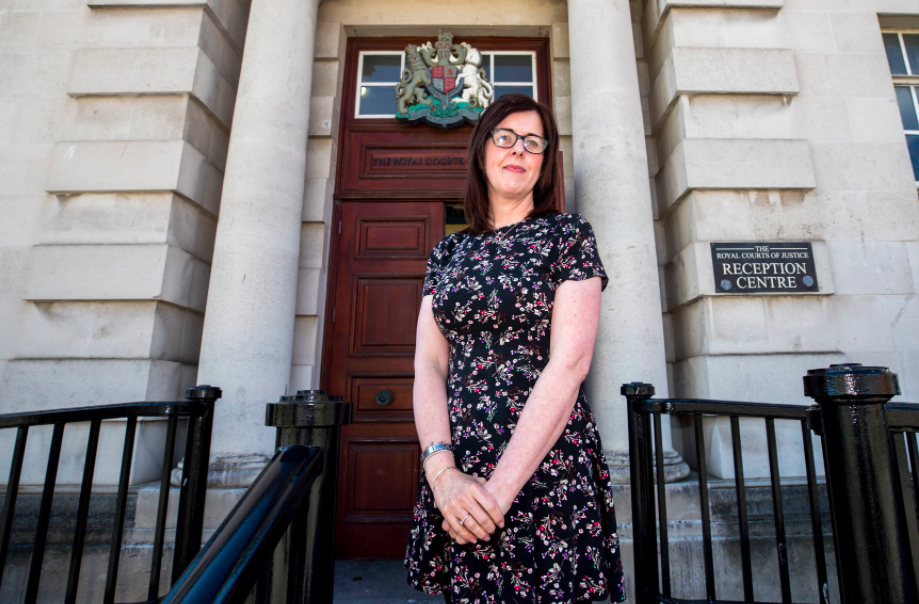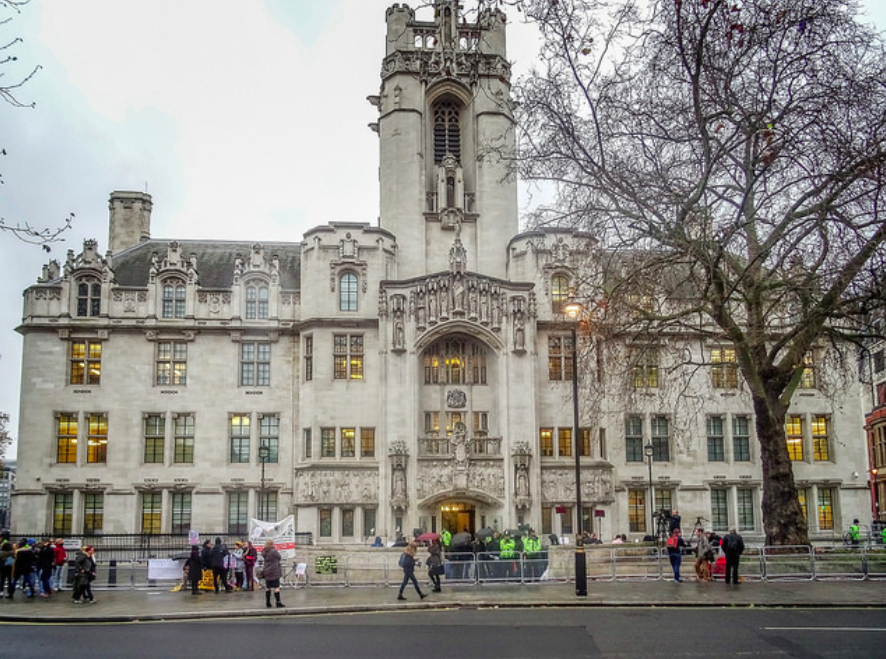Unmarried mother wins Supreme Court battle for widowed parent's allowance for her bereaved children

An unmarried mother-of-four has won a Supreme Court battle enabling her to access widowed parent’s allowance for her bereaved children.
Siobhan McLaughlin, 46, was refused the benefit after her partner John Adams died from cancer in January 2014 because the couple, who had four children and were together for 23 years, were not married or in a civil partnership.
She initially won a case after claiming unlawful discrimination based on her marital status, but that ruling was later overturned by the Court of Appeal.
However, by a majority of four justices to one, the Supreme Court ruled this morning that the current law on the allowance is ‘incompatible’ with Human Rights legislation.
Giving the lead judgement, the court’s President Lady Hale said: ‘The allowance exists because of the responsibilities of the deceased and the survivor towards their children.
‘Those responsibilities are the same whether or not they are married to or in a civil partnership with one another.
‘The purpose of the allowance is to diminish the financial loss caused to families with children by the death of a parent.
‘That loss is the same whether or not the parents are married or in a civil partnership with one another.’

However, Lady Hale said not every case where an unmarried parent is denied the allowance after the death of their partner will be unlawful.
The court also said it is up to the Government to decide whether or how to change the law.
Ms McLaughlin, a special needs classroom assistant from Armoy, Co Antrim, was with her partner John Adams, a groundsman, for 23 years and they had four children – Rebecca, 15, Billy, 16, Lisa, 21, and Stuart, 23.
Following Mr Adams’s death, Ms McLaughlin had to take on an evening job after being refused widowed parent’s allowance by the Northern Ireland Department for Communities.
READ MORE ON YAHOO NEWS UK:
M25 crash: Ikea lets stranded customers sleep in store beds after overturned lorry blocks Dartford Crossing
Britain’s ugliest building: Behold the six ‘contenders’ for unwanted architecture award
First sex doll brothel set to open in North America
Police hunting two convicted rapists who absconded from Gloucestershire open prison
Man, 61, fights off shark attack by punching it in the gills
Speaking outside court after the April hearing in the Supreme Court, which sat in Northern Ireland for the first time, Ms McLaughlin thanked supporters.
Attending with two of her children, she said: ‘This case was never about me. I would love to be recognised as a widow but I accept in the eyes of the law and the Government that I am not.
‘What I wasn’t prepared to accept was how the Government viewed my children – how they could treat my grieving, bereaved children as insignificant.
‘I am such a private person but to sit and accept that this is how it is made me say, ‘No, this is wrong’.

‘I want to look my children in the eye and say it is the Government at fault here, not you, and because of this I have tried to rectify this for you.’
Alison Penny, director of the Childhood Bereavement Network, said: ‘We are delighted with the Supreme Court’s decision.
“Grieving children are deserving of support, whether their parents were married or not.’
Andrew Wilkinson, partner and will dispute specialist at law firm, Shakespeare Martineau, added: ‘The UK courts are finally recognising the rights of unmarried couples.
‘Whilst the position of unmarried partners is still precarious, the rights afforded by this decision are certainly an improvement. It will allow people in the UK to apply for the widowed partner’s allowance….
‘Whilst it is a positive outcome, the vulnerable position of unmarried couples upon death has been highlighted.
‘They must ensure that wills are in place which clearly states the manner in which estates are to be divided so that proper provision is made for partners and children.’
A DWP spokesman said: We will consider the court’s ruling carefully.
‘Widowed parent’s allowance was a contributory benefit and it has always been the case that inheritable benefits derived from another person’s contributions should be based on the concept of legal marriage or civil partnership.
‘This ruling doesn’t change the current eligibility rules for receiving bereavement benefits, which are paid only to people who are married or in a civil partnership.’


